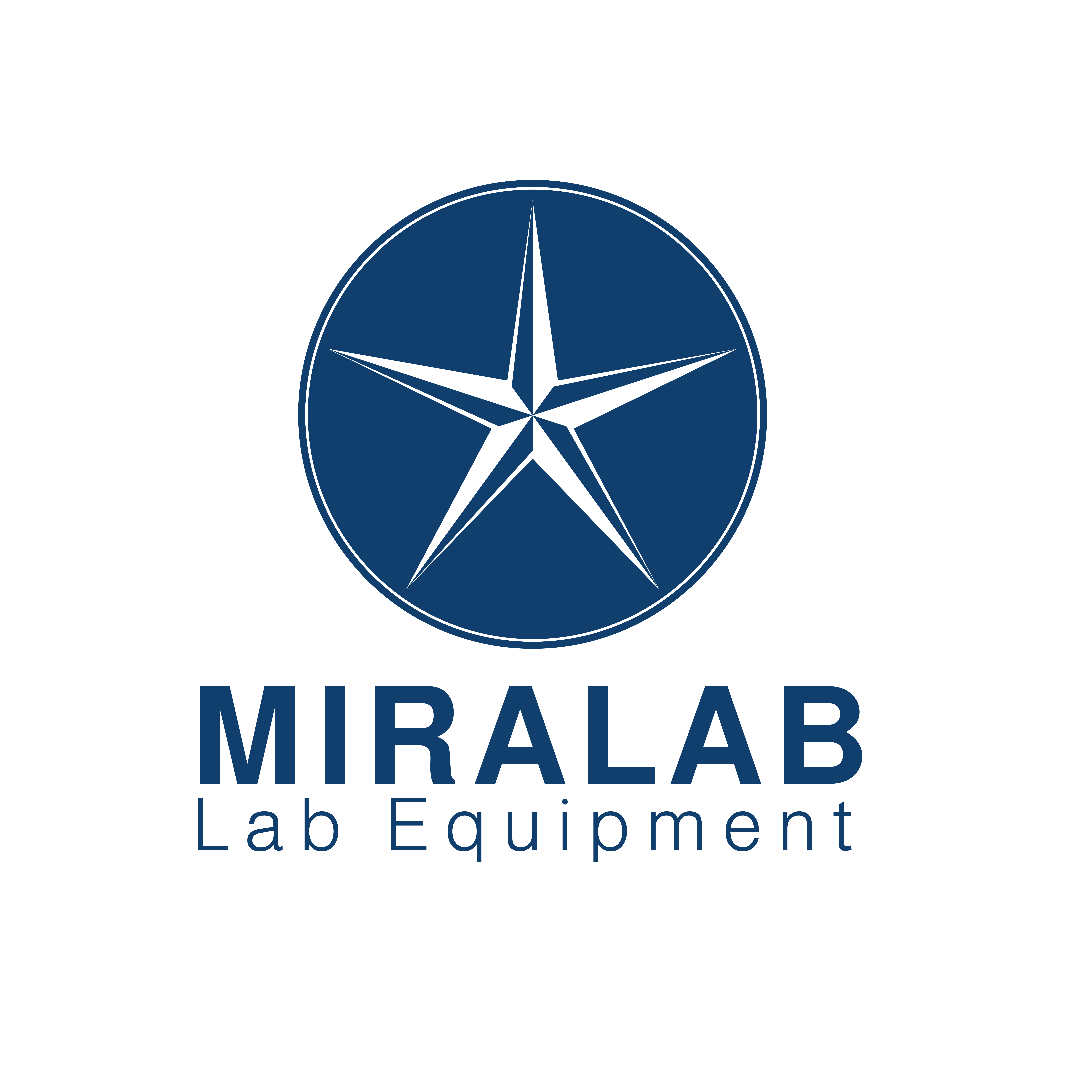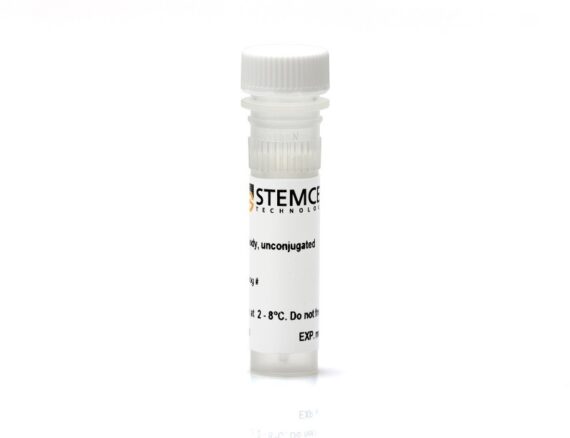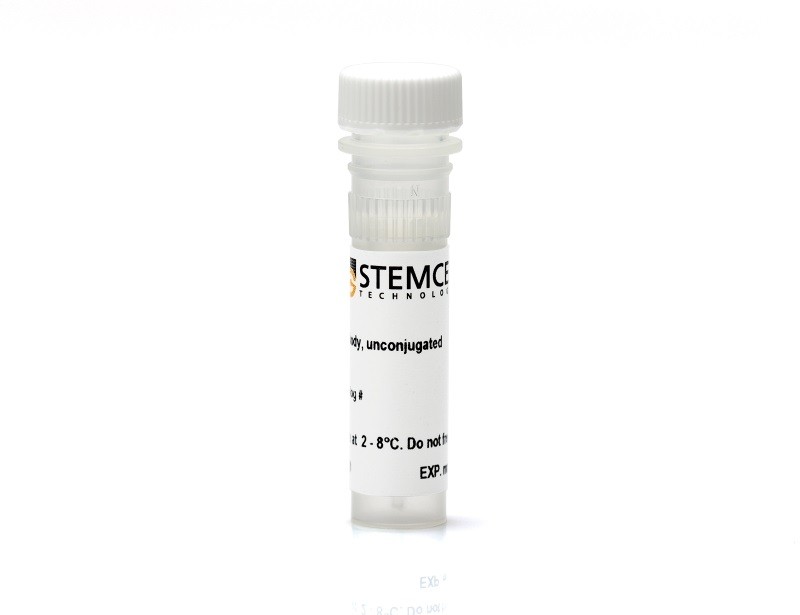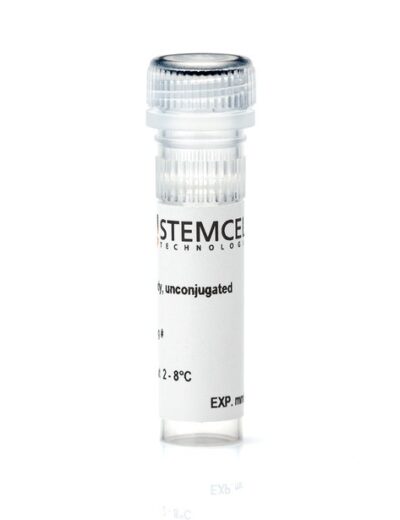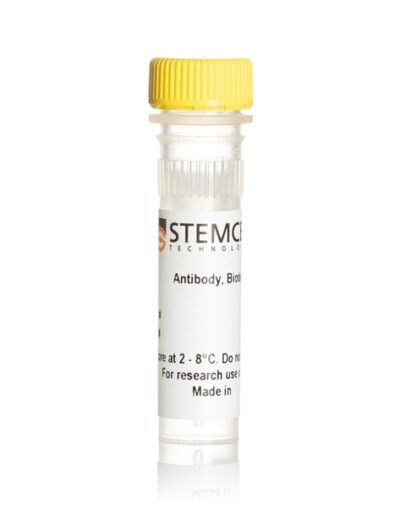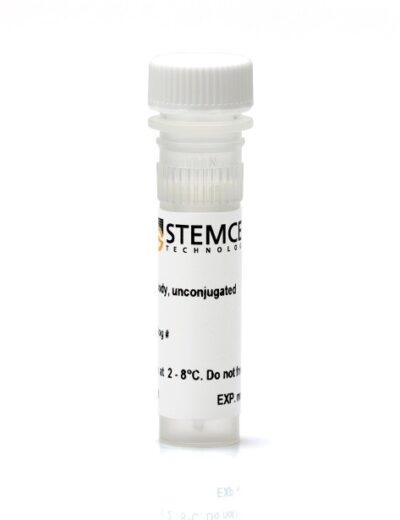Anti-Human Beta-Tubulin III Antibody, Clone 2G10-TB3 Mouse monoclonal IgG2a antibody against human, mouse, rat betatubulin III
Overview
The 2G10-TB3 antibody reacts with beta-tubulin III, an ~50 – 55 kDa structural protein that is a constituent of tubulin. Tubulin is the major component of microtubules within the cytoskeleton and is assembled from heterodimers of alpha- and beta-tubulin subunits. The beta III isoform of tubulin, also known as neuron-specific class III beta-tubulin, is expressed primarily in neurons and is widely used as a marker to distinguish neurons from other cell types. Beta-tubulin III contributes to microtubule formation in neuronal cell bodies and axons, a function involving GTP binding, and plays roles in axonal transport, neuronal cell proliferation, and differentiation. It is highly expressed in several types of cancer and is a predictive and prognostic marker for various tumors, for example, being found in neoplastic but not in normal glial cells. The 2G10-TB3 antibody is expected to recognize all mammalian homologs of beta-tubulin III and the epitope has reportedly been mapped to the extreme C-terminal amino acids, EAQGPK.
Subtype: Primary Antibodies
Target Antigen: Beta-Tubulin III
Alternative Names: Class 3 beta-tubulin, class III beta-tubulin, MC1R, neuron-specific class 3 beta-tubulin, neuron-specific class III beta-tubulin, TUBB 3, TUBB3, tubulin beta 3, tubulin beta 4, tubulin beta III
Reactive Species: Human; Mouse; Rat
Conjugation: Unconjugated
Host Species: Mouse
Cell Type: Neural Cells, PSC-Derived; Neurons
Application: Flow Cytometry; Immunocytochemistry; Immunofluorescence; Immunohistochemistry; Immunoprecipitation; Western Blotting
Area of Interest: Neuroscience
Clone: 2G10-TB3
Gene ID: 10381
Isotype: IgG2a, kappa
